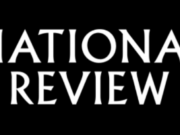People often advise against “making a federal case” out of minor grievances. Someone in your neighborhood has a noisy dog? By all means mention it to them — but, please, don’t make a federal case out of it.
Gov. Steve Bullock of Montana is breaking from this bit of colloquial wisdom. He dislikes how the Internal Revenue Service is doing its job, and he’s making a federal case out of it.
The IRS has run into quite a bit of trouble. Under the Obama administration, it singled out nonprofits on the basis of their ideology for extra scrutiny. The tax agency also had to deal with rogue staff leaking donor information.
This sort of misbehavior has always been a danger. As the Supreme Court noted in 1976, when the government demands to know “the giving and spending of money” our freedoms are threatened, “for financial transactions can reveal much about a person’s activities, associations, and beliefs.” It was not for nothing that the IRS was one of Richard Nixon’s favorite tools to harass critics and rivals.
So when the IRS announced it would stop requiring that some nonprofit groups, including labor unions, report the names and addresses of their major donors, everyone should have breathed a sigh of relief. If it doesn’t have this information, the Trump administration cannot misuse it for political gain, or to promote the harassment of donors to left-wing causes.
But Bullock disagrees. His complaint, filed July 24 in federal court, argues that the IRS did not have the statutory power to cease collecting donor information. He’s wrong.
Congress expressly gave the IRS wide discretion to determine the information it needs from nonprofit groups. And federal regulations allow the IRS commissioner to “relieve any … class of organizations … from filing” information when “he determines that such returns are not necessary for the efficient administration of the internal revenue laws.”
Here, the commissioner determined that because contributions to these non-profits (as opposed to 501c(3) non-profits) are not tax-deductible, there is no need to collect donor information to ensure people aren’t improperly claiming deductions. And given the obvious privacy concerns, it was unwise to keep a list of sensitive financial transactions lying around on the IRS’ servers.
Despite all this, Gov. Bullock sued because he would very much like access to private donor information — but without the inconvenience of having to set up his own procedures for getting it.
As the lawsuit puts it, “Montana will be forced to assume the burden of developing unique processes to solicit the significant contributor information contained in the current Form 990, Schedule B, including legislative and rule changes.”
The complaint understates this goal, and instead distracts by raising the specters of campaign finance violations and self-dealing. The complaint suggests that the governor needs this information to fight “dark money.”
How this is supposed to work, however, is not exactly clear. Since the information must be kept secret by the IRS and Montana, none of it is public, and both the IRS and Montana may request it directly — but only where they have a reason other than idle curiosity.
Moreoever, “dark money” is a pejorative term, not a legal one. In 1958, discussing the First Amendment in NAACP v. Alabama, the Supreme Court recognized the right of all Americans “to pursue their lawful private interests privately and to associate freely with others in so doing.”
If Bullock wants to advocate for repeal of the First Amendment so that he can monitor the causes Montanans support, he is free to do so. But the Constitution protects the privacy of this kind of information precisely because politicians can misuse it. Slapping a new label on a constitutional right to make it sound scary does not, by virtue of PR wizardry, amend the Bill of Rights.
And look, we get it. Nobody likes the IRS. Say you sued the IRS, and it’s sure to be a great applause line. And few will check the details of nonprofit tax law before applauding.
At the end of the day, however, the IRS did the right thing. It may have made it harder for Bullock to pry into individuals’ private affiliations, but the Bill of Rights exists to hinder politicians, not help them.
Allen Dickerson is a First Amendment and political law attorney. He is the Legal Director of the Institute for Free Speech. Zac Morgan is a Staff Attorney at the Institute for Free Speech.














